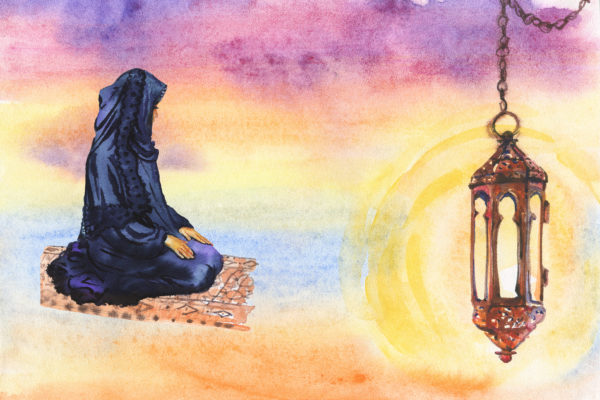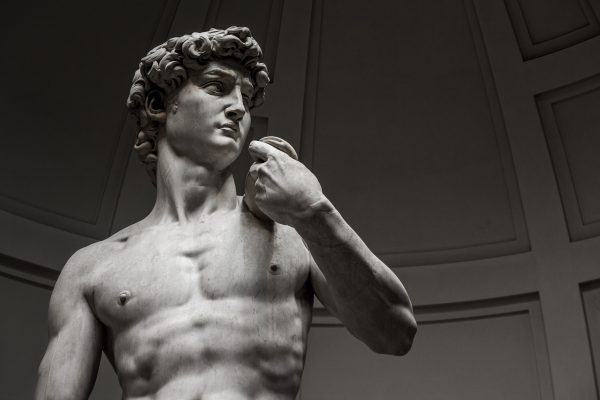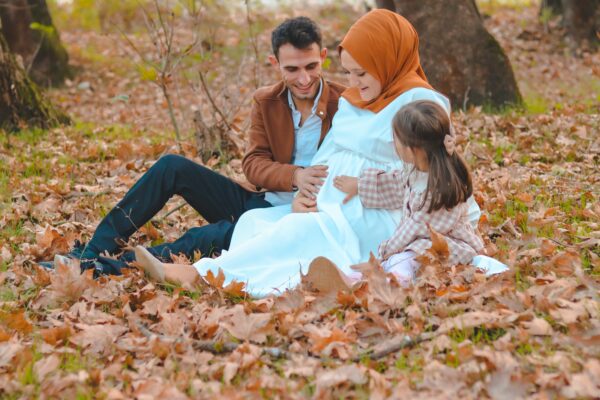“If a woman is free to do whatever she wants with her body, why doesn’t she have the right to cover herself? Under these conditions, feminists, from being violated, turn into violators, and even violators of the rights they proclaim.”
“If a woman is free to do whatever she wants with her body, why doesn’t she have the right to cover herself? Under these conditions, feminists, from being violated, turn into violators, and even violators of the rights they proclaim.”
Western feminism is a movement that claims to protect, uplift, and fight for us all, however when it comes to Muslim girls and women it does not serve them but excludes them.
The battle that a Muslim woman must go through is not only physical. There is a psychological campaign against the hijab of Muslim women claiming that it is oppressive. This campaign is present in almost all forms of media consumption and has created an identity battle for the Muslim woman.
In an interview with this author, journalist Ledina Jakimi states that despite the goal of this movement, Western feminism is not always intersectional and excludes Muslim girls and women by discriminating against them:
“In my view, despite efforts, mainstream, Western feminism is not always intersectional. A Muslim girl or woman wearing a headscarf is disadvantaged not only by gender but also because of her religious belief and what she wears. In the country where I live, there is still no woman in the media who wears a headscarf to run a news edition. But this does not happen only in this sphere of employment.” She continues:
“Many other institutions do not allow Muslim women to practice their profession because of their hijab. Discrimination against them continues even in public places or schools, places which have gone so far as to deny services to Muslim girls and women in these institutions, which is very wrong.”
She further says that the relentless association of modesty with oppression and sexuality with strength according to Western feminists is very wrong.
Through this line of reasoning, we are saying that women’s strength is based on their sexuality, and to be seen as strong, sexuality must be made public. The feminist mindset that the hijab is a symbol that Islam views women as sexual objects, that she must be covered because she is reductively viewed as a woman whose only attribute is her sexuality and that threatens the social order, is very wrong…”
“Rather, the hijab is a garment that boosts the self-confidence of girls and women, reminding them that their worth is not based on their appearance, but on their pious deeds. From this prism, the hijab is a symbol of a religion that treats women as persons and not as sexual objects, a conclusion that is the opposite of the feminist mindset. From what I know, and from contact with many Muslim girls, I know that they cover themselves because of religion, because of God, and because they feel happy about the veils they have. All of these are legitimate reasons to keep it.”
Semi Berberi, a math teacher and Muslim believer, says that feminists often misuse the purpose of this movement by leaving girls with headscarves completely out of their circle:
“Feminists often misuse the purpose or essence of being a feminist due to being misinformed or having the wrong approaches to being an activist in a feminist movement, and it is not uncommon for various feminist lobbies to be used for specific functions that I think that girls with headscarves are completely left out of their circle.
“I take a cue here from influential TV personalities in the media world, and we have even heard cases of their prejudice against women with headscarves. The voice must be raised indisputably and massively to show the world that the headscarf is not a patriarchal reality, on the contrary, it is the conviction and decision of the girls themselves about the garment they wear for 1000 reasons that should be conveyed or promoted in today’s society. So I think the phenomenon continues.”
For journalist Bekim Bici, the whole social movement of Western feminism is often misunderstood and misinterpreted. Under the pretense that they are protecting women’s rights, in reality, they turn to extremism, which is nothing more than a violation of another right, or even prejudice:
Today, feminist organizations seek to monopolize the thing, because they no longer see this activity as a sensitizing, reforming movement or to put women’s rights in place, but as an opportunity to assert themselves politically, medially, and for economically benefited as much as possible from the funds of international organizations.”
Bici continues:
“If a movement aiming for justice prevents the participation of a certain social group, such as practicing Muslims or even devout Catholics, it becomes a violator of human rights. If a Muslim girl, with her desire, will, and completely personal decision because of her love for God, decides to cover herself, this act of love is considered by feminists as an oppression of women. In reality, this is a prejudice and not only Muslim women are denied the right to activism in these organizations. In this way, from seekers of women’s rights and freedoms, they turn into their oppressors.
“If feminists aim to sensitize the masses to the idea that a woman should do what she wants with her body, in this case, they violate this principle with both feet.”
On the other hand, he states that considering Islam oppressive, when in reality it is the first religion and the first social group that spoke and ensured women’s rights, such as inheritance, to vote, etc., is an attempt to manipulate the truth and to introduce wrong ideas that lead to prejudice and not only. These attempts for narrow interests are nothing but indicators of the fact that these movements have deviated from their purpose.
If a woman is free to do whatever she wants with her body, why doesn’t she have the right to cover herself? Islam gives so much importance to women that it says that heaven is at her feet. And why then a Muslim cannot be part of such a movement? Under these conditions, feminists, from being violated, turn into violators, and even violators of the rights they proclaim.”
Meanwhile, Imam Qazim Maçi says that severing a woman from the chain of naturalness is a violation of every value.
“From the beginning, God started with Adam and Eve! Male-female, husband-wife, family! God spoke to Adam (faith-religion). And not in vain, this family, man-woman, male-female and equipped with faith in God, Allah appointed them to live in paradise!
“It is a great message for every person, that heaven and every goodness in this world and the next world, is achieved with faith, family, and pure human nature. Disconnecting a woman, a sister, a mother from this chain of naturalness is a violation of every value! Even why is it intended that the word value or morality not exist anymore? The greatest value is shown to us from the beginning of creation, faith, and family! And any attempt to depart from the example of creation brings evil.”
For Xhemal Darsi, Muslims do not need to agree with a particular ideology when Islam includes the rights of girls and women, protecting them because before Islam they were buried alive.
“In Islam, women and men as human beings are equal before Allah. Islam is equalizing and not differentiating. Before him, all are the same, white or black, women and men. There is no place where it is said that the man is above the woman and vice versa, except that their deeds make the difference. What is worth emphasizing very strongly and reminding these movements is that before Islam, girls were buried alive, but it was our religion that forbade such a thing.”
Female Muslim empowerment: Post-colonialism, feminism, and the hijab
I remember the first day I put the hijab on. No one in my family or my relatives wore the hijab, and they didn’t even pray. My parents were worried and did not agree with my choice at first. I even had to travel abroad and encountered an Islamophobic attack because of my hijab. It was one of the many times Islamophobia and white feminism played a role in trying to remove my headscarf.
But for me, my hijab was a symbol of resistance. In that way, I addressed the pressures of cultural imperialism and Islamophobia, but not only. The primary one was the indication of the fact that faith is the most important thing to me and that my veil is openly the way to show who I love the most. And the one I love the most is Allah.
The Western feminist movement must be able to deal with the idea that some women believe in certain things that otherwise contradict the idea of their feminist thought, such as the hijab.
Although the practice of Islamic rules is a phenomenon that requires commitment and sacrifice, that is attacked, fought, and not stimulated, many women are empowered by the hijab, and keeping their veil proves that she has chosen the path of humility and submission to Allah. This action makes them very happy even though the circumstances do not support it, therefore, provided that there is no lack of correctness, to arouse solidarity and support, the voice should be raised even by those who do not practice this type of clothing or belief.
We Muslims believe that only Allah, the Almighty, deserves submission. It is very clear that the idea of subjugation is not seen as a free concept and may even seem like a contradiction to freedom itself. However, we must respect the fact that people are exercising their free will when they choose who they submit to.
One woman may want to get married and have many children, another may want to only have a career. A girl can grow up wanting all her life to become successful and famous. And maybe one of them wants to serve God and be a nun or be a Muslim who expresses her faith by wearing a hijab. Let’s accept them.
Let’s support all girls and women, even those who choose to wear the hijab, treat them with kindness, and discuss with them in the spirit of free will and if you disagree, as long as they don’t harm themselves or anyone else. These are basic rights for every human being.
And no, believing in God, if done right, doesn’t hurt anyone.





